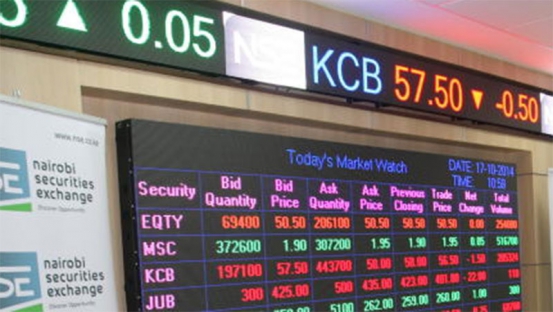×
The Standard e-Paper
Join Thousands Daily

You wouldn’t believe that the Nairobi Securities Exchange once boasted of a bakery, a furniture dealer, a dry cleaner, a sack concern, a timber firm, a milling entity and a road construction company trading their shares there.